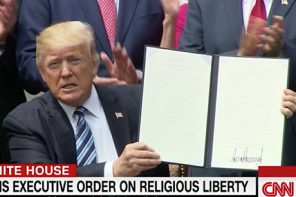Although it is far from over, it does look as though some kind of plan for universal coverage will emerge from the Democratic Congress this Fall. What is also clear is that the package will be far from ideal. I expect the public plan or public option to be so weak as to be ineffective and thus ripe for elimination in the next round; I also expect any new taxes that are levied to pay for expanded coverage to be regressive—e.g. a tax on workers’ existing benefits rather than a tax on rich people’s surplus wealth. It is even possible that Medicare for the elderly and disabled will be significantly compromised—and Medicaid for the poor cut still further—as the price of some kind of health care “victory” for the new administration.
Here is what I take away from the spectacle so far. The President wanted to avoid Clinton’s mistake of going to the Congress with his own fully-developed plan (never mind that the plan, not the process, might have been the mistake). And wary of the providers’ and insurers’ capacity to kill reform, the President also decided to give them a piece of the action. He invited them in (lots of them, according to the log of industry visitors to the White House that Citizens for Responsible Ethics in Washington was finally able to extract), and he said repeatedly that their “ideas” about reform were most welcome at the table.
Morally speaking, however, not all “ideas” have the same legitimacy. There is no moral equivalence between the views of disinterested analysts and public health specialists and the views, of say, medical equipment manufacturers or pharmaceutical companies or (most notoriously) big health insurance companies whose entire raison d’etre is to make money by denying care and/or by squeezing their profit out of every single medical procedure that does take place.
The “ideas” brought to the table by lobbyists for these powerful groups are not properly ideas at all; they are encapsulations of naked private interest. Moreover, this happens to be a malign private interest that militates against the moral claim—the legitimate “interest”—of tens of millions of the sick and suffering.
It’s not that the 44th President is stupid and misses these points. Just this weekend I heard his chief of staff, Rahm Emanuel, tell a radio interviewer that the insurance companies do not speak in the public interest or reflect the public’s wishes for reform. The problem now, however, is that the President gave the powerful private players too much legitimacy on the front end. They in turn took full advantage of that opening to do their dirty work: they made sure that any public plan would not threaten their profits.
How different it might have been if Obama had said right from the top, “Of course I will listen to the insurers and the drug companies and the medical equipment makers and the hospital associations. But I want everyone to understand that these groups are not our friends; their enormous profits are what have been standing between us and the goal of coverage that is both universal and affordable. If the ideas they bring to me merely seek to protect their profits and their power, I will call them out on that—and as loudly as I have to, and each and every day!”
Knowing how hard the big players would fight to save their pelts, the President might also have kept single payer on the table to the very end and used it as a blunt object, if necessary, to ensure the creation of a truly robust public plan. The monied players understand that politics at this level is a brutal blood sport, not a seminar exercise. Anticipating this fight, they worked for years to put the Republicans and Blue Dogs in their pocket. It is less clear that Obama understands the mortal combat nature of health care politics.
Now he does, but now it’s too late. Now we don’t have a passionate President standing with the hurting populace and against the Gucci-clad creeps and their compliant Congressional clients. Now it’s trim a little here, tuck a little there, but no real cost containment will be possible because huge ongoing private profits in health care delivery have been politically sanctified and held to be untouchable.
Candidate Obama said he wanted a different tone in Washington: less divisive, less rancorous, less partisan. That’s illusory. But there will be a final tableau vivant, a simulacrum of comity, when a badly junked-up bill gets signed into law. Everyone will smile brightly for the cameras. But the health care parasites will smile a little more brightly than anyone else. They will smile all the way to the bank.




